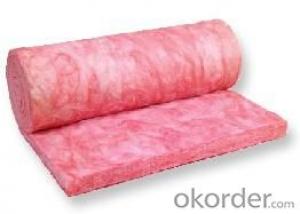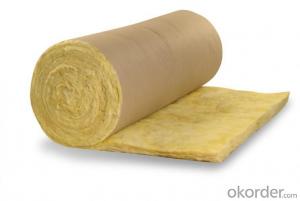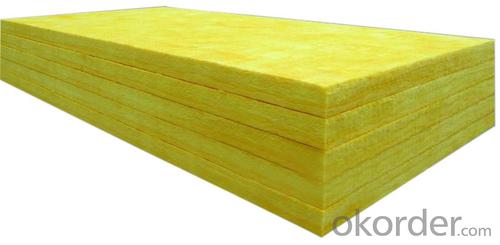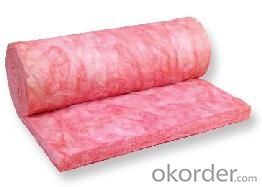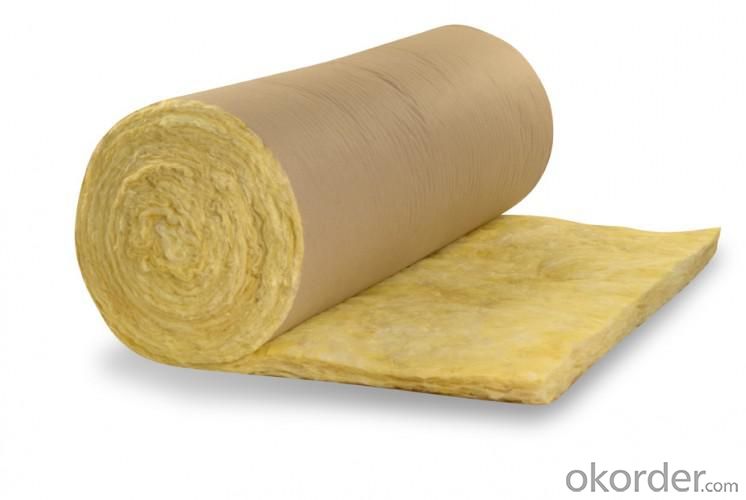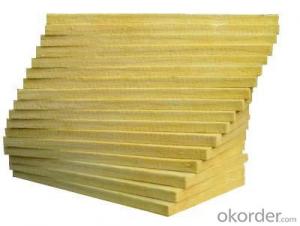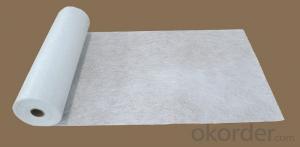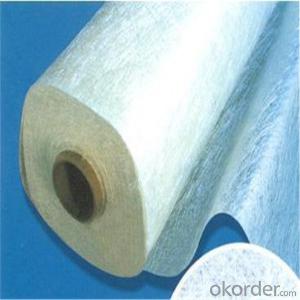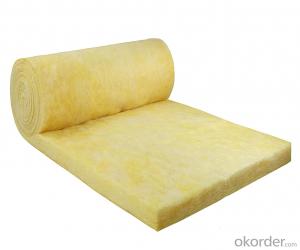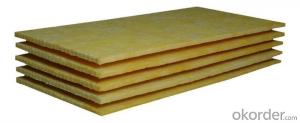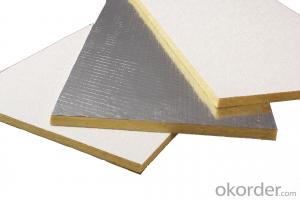Fiberglass Mat Tissue High Quality Fiberglass Insulation / Glass Wool Insulation for Roof in Construction
- Loading Port:
- Tianjin
- Payment Terms:
- TT OR LC
- Min Order Qty:
- 5000 m²
- Supply Capability:
- 20000 m²/month
OKorder Service Pledge
OKorder Financial Service
You Might Also Like
1.Description of Glass Wool Blanket:
Glass Wool Blanket complete glass wool production lines employing latestgeneration technology to manufacture boards, rolled blankets and pipes for residential and industrial thermal and acoustic insulation needs, in compliance with the top international standards (EN, DIN, ASTM).
At the system HOT END, the raw materials are dosed, mixed, melted, fiberized, impregnated with a special binder and formed into a primitive mat of very fine fiber glass. Continuous conveyors transport the mat to the COLD END of the plant for binder polymerization. The product is then cut to shape and packed for shipping.
2.Main features of Glass Wool Blanket:
1.Excellent thermal, acoustical properties
2.Light weight and easy to fabricate on job site
3.Non-combustible and fire-retardant
4.Very economical, especially when using thick layers of insulation
5.Durable, life-time and termite proof
3.Glass Wool Blanket Images:
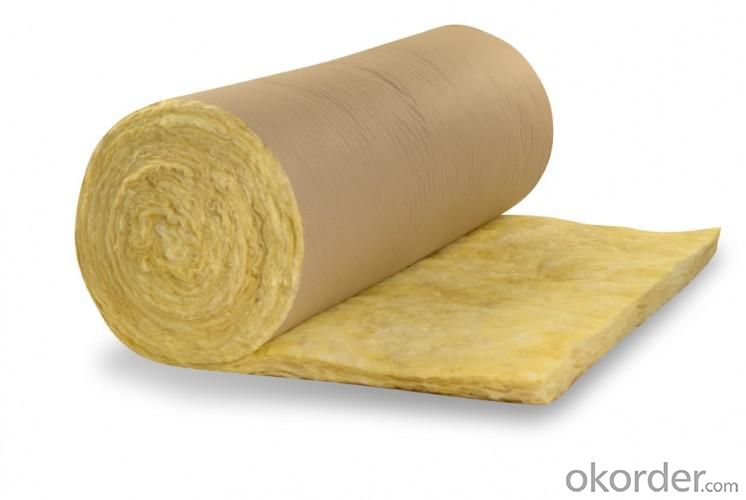
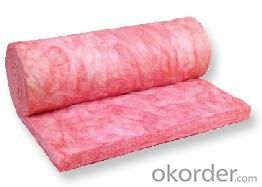
4. Glass Wool Insulation Blanket Technical Parameters:
Property | High/low temperature resistance, oil and fuel resistance, weathering resistance, O zone resistance etc. |
Shape | According to your requirement. |
Color | Any color is available ,according to your requirements. |
Material | NBR, CR, SBR, EPDM, IIR, NR, EP, Silicone, VITON etc. |
Hardness | 30-90ShoreA |
Delivery | In 10 days |
Packing | Plastic bag & carton box or according to your requirements. |
Application | Electronic field, industrial machine & equipment, house-hold appliance, telecommunication, automobile, medical equipment industry etc. |
5.FAQ 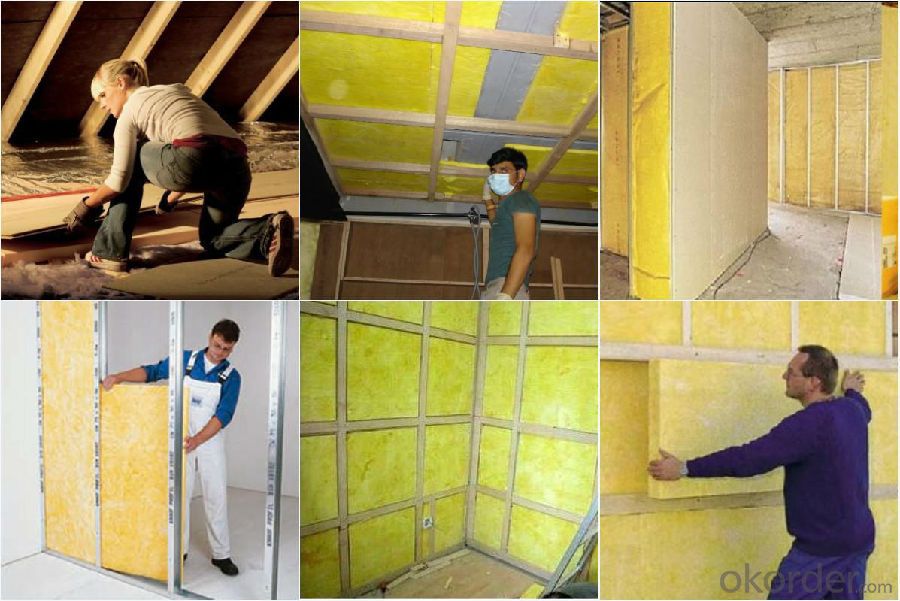
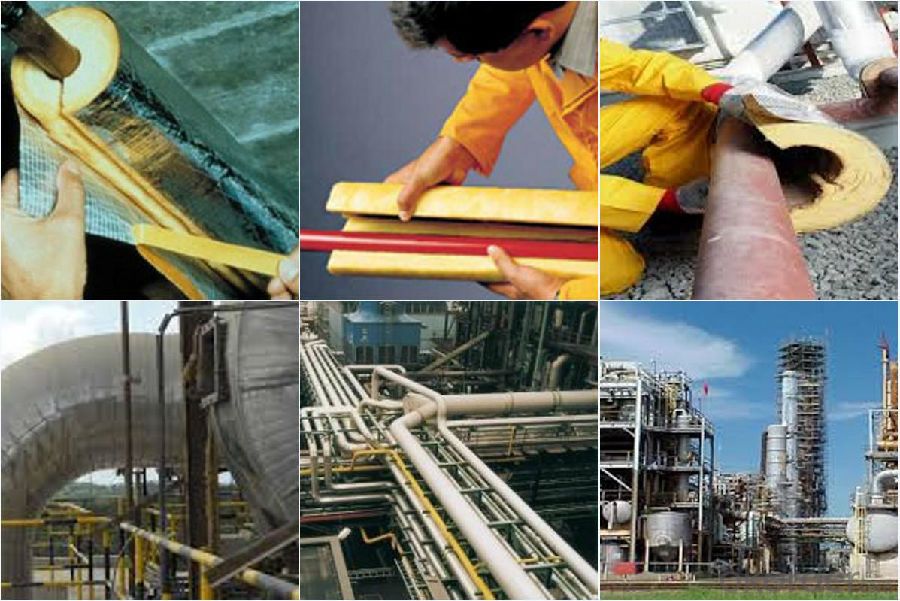
We have organized several common questions for our clients,may help you sincerely:
①How about your company?
A world class manufacturer & supplier of Glass Wool Blanket is one of the large scale professional investment casting production bases in China,consisting of both casting foundry forging and machining factory. Annually more than 8000 tons Precision casting and forging parts are exported to markets in Europe,America and Japan. OEM casting and forging service available according to customer’s requirement.
②How to guarantee the quality of the products?
We have established the international advanced quality management system every link from raw material to final product we have strict quality test; We resolutely put an end to unqualified products flowing into the market. At the same time, we will provide necessary follow-up service assurance.
- Q: Is fiberglass mat tissue resistant to earthquakes?
- Fiberglass mat tissue is not specifically designed to be resistant to earthquakes. It is primarily used as a reinforcing material in the construction industry to reinforce and strengthen various surfaces, such as walls, floors, and ceilings. While fiberglass can provide some level of strength and stability to structures, it is not specifically engineered to withstand the intense shaking and ground motion caused by earthquakes. To make a structure earthquake-resistant, engineers typically employ a combination of techniques and materials, such as reinforced concrete, steel frameworks, and specialized seismic design principles. These measures are specifically aimed at dissipating and absorbing the energy generated during an earthquake, ensuring the structural integrity of the building and the safety of its occupants. Therefore, if you are looking for earthquake resistance in a building or structure, it is important to consult with a professional engineer who specializes in seismic design and can recommend appropriate materials and construction techniques.
- Q: Is fiberglass mat tissue suitable for outdoor applications?
- Yes, fiberglass mat tissue is suitable for outdoor applications. Fiberglass mat tissue is made from woven fiberglass strands that are held together with a binder. This material is highly resistant to water, weather, and UV radiation, making it ideal for use in outdoor environments. It can be used in various outdoor applications such as roofing, insulation, and construction. The waterproof and weatherproof properties of fiberglass mat tissue ensure its durability and longevity when exposed to the elements. Additionally, it is lightweight and easy to handle, making it a versatile choice for outdoor projects.
- Q: What are the different surface finishes available for fiberglass mat tissue?
- Some common surface finishes available for fiberglass mat tissue include smooth, textured, embossed, and matte finishes. These finishes can provide various aesthetic effects and enhance the performance of the fiberglass mat tissue in different applications.
- Q: Can fiberglass mat tissue be used for making lightweight countertops?
- Indeed, lightweight countertops can be crafted using fiberglass mat tissue. This particular material, derived from delicate glass fibers, possesses the desirable qualities necessary for producing lightweight countertops. Not only does it offer robustness and longevity, but it is also pliable and can be effortlessly shaped and sized to fit various specifications. Moreover, fiberglass mat tissue possesses resistance to moisture, chemicals, and heat, rendering it a fitting choice for countertops that may encounter such elements. In conclusion, utilizing fiberglass mat tissue to fabricate lightweight countertops proves to be a pragmatic and effective resolution.
- Q: Can fiberglass mat tissue be used for insulation purposes?
- Indeed, insulation purposes can be achieved using fiberglass mat tissue. This lightweight material is crafted from delicate glass fibers that are skillfully bonded together with a binder. Although it is commonly utilized as a reinforcement material within the construction industry, it also serves as a valuable source of insulation. The thermal insulation properties of fiberglass mat tissue are truly outstanding, rendering it a highly effective option for insulating various structures, including buildings. By impeding heat transfer, it ensures that the interior of a building remains warm during chilly weather and cool during hot spells. Furthermore, its non-combustible nature guarantees a secure choice for insulation purposes. The popularity of fiberglass mat tissue as an insulation material stems from its flexibility and effortless installation. It can be easily cut and molded to fit diverse spaces, making it an adaptable choice for a multitude of construction projects. Additionally, its resistance to moisture, mold, and mildew ensures that its insulation performance remains durable and long-lasting. To summarize, fiberglass mat tissue is indeed a viable option for insulation purposes. Its remarkable thermal insulation properties, non-combustible characteristics, and ease of installation make it an ideal choice for enhancing energy efficiency and insulating buildings.
- Q: Can fiberglass mat tissue be used for making furniture?
- No, fiberglass mat tissue is not typically used for making furniture. Fiberglass mat tissue is a lightweight material that is commonly used in industries such as construction, automotive, and aerospace for its strength and durability. It is often used as a reinforcement material in the production of composite materials, such as fiberglass-reinforced plastic (FRP) or fiberglass-reinforced polymers (FRPs). While fiberglass may offer some advantages in terms of strength and resistance to moisture, it is not a commonly used material in furniture manufacturing. Furniture typically requires materials that are aesthetically pleasing, comfortable, and easy to work with. Fiberglass can be difficult to shape, may not provide the desired texture or visual appeal, and can be uncomfortable to sit or lie on. Instead, furniture manufacturers typically utilize materials such as wood, metal, plastic, upholstery fabrics, and foam for creating furniture pieces. These materials offer a wider range of options in terms of design, comfort, and customization, making them more suitable for furniture production.
- Q: How does fiberglass mat tissue compare to polyurethane insulation?
- In the construction industry, fiberglass mat tissue and polyurethane insulation are commonly used materials, but they differ in terms of their composition, performance, and applications. Fiberglass mat tissue consists of woven glass fibers and is primarily used to reinforce various materials, including roofing, wall insulation, and fiberglass composites. Its main advantage lies in its high tensile strength, which provides excellent structural support and durability. Additionally, it is resistant to fire and chemicals, making it a suitable option for applications where safety is a concern. In contrast, polyurethane insulation is a foam material known for its exceptional thermal insulation properties. It is frequently utilized in buildings to minimize heat transfer and enhance energy efficiency. With its high R-value, indicating its ability to resist heat flow, it is particularly well-suited for insulation purposes, especially in regions with extreme temperature conditions. Furthermore, polyurethane insulation is lightweight, easy to install, and exhibits good moisture resistance. When comparing fiberglass mat tissue to polyurethane insulation, it is crucial to consider the specific requirements of the project. Fiberglass mat tissue is best suited for applications that necessitate structural reinforcement, such as roofing and composite materials. Its strength and durability make it the preferred choice for such applications. On the other hand, polyurethane insulation excels in terms of thermal insulation. It offers superior heat resistance and possesses a higher R-value compared to fiberglass mat tissue. Therefore, if the primary objective is to enhance energy efficiency and minimize heat transfer, polyurethane insulation would be the superior option. In conclusion, fiberglass mat tissue and polyurethane insulation each have their own advantages and disadvantages. The decision regarding which material to use should be based on the specific needs of the project, whether it be structural support or thermal insulation requirements. Consulting with a professional and taking into account factors such as budget, environmental impact, and local building codes will aid in making an informed decision.
- Q: Is fiberglass mat tissue suitable for aerospace applications?
- Fiberglass mat tissue proves to be a suitable choice for aerospace applications. Its lightweight composition and remarkable durability render it an excellent option for critical aerospace uses where reducing weight and ensuring structural integrity are of utmost importance. Typically employed as a reinforcing material in composite structures and aerospace components like wings, fuselages, and engine parts, fiberglass mat tissue provides exceptional impact resistance, commendable thermal stability, and minimal moisture absorption. These vital characteristics enable it to withstand the challenging conditions and extreme temperatures encountered in aerospace environments. Moreover, fiberglass mat tissue exhibits commendable electrical insulation properties, making it well-suited for applications requiring effective electrical shielding. Overall, owing to its outstanding mechanical properties, lightweight essence, and ability to endure the demanding circumstances prevalent in aerospace applications, fiberglass mat tissue stands as a dependable and extensively utilized material within the aerospace industry.
- Q: Can fiberglass mat tissue be used in wet environments?
- Yes, fiberglass mat tissue can be used in wet environments. Fiberglass mat tissue is designed to be resistant to moisture and can withstand exposure to water, making it suitable for applications in wet environments. It is commonly used in industries such as construction, marine, and automotive, where components or structures are exposed to water, humidity, or moisture. The material's resistance to water ensures that it maintains its structural integrity and does not degrade or lose its performance properties when subjected to wet conditions.
- Q: Is fiberglass mat tissue suitable for insulation in residential buildings?
- Residential buildings find fiberglass mat tissue to be a suitable option for insulation. This insulation material, made from glass fibers, is commonly used because of its exceptional thermal properties. With a high R-value, it effectively reduces heat transfer, keeping interiors warm in winter and cool in summer. In addition to its thermal efficiency, fiberglass mat tissue is renowned for its durability and long lifespan, making it a reliable choice. It resists moisture, mold, and pests, ensuring a healthy and comfortable living environment. Moreover, its lightweight nature and easy installation process make it efficient and cost-effective for insulation purposes. Moreover, fiberglass mat tissue possesses the crucial feature of being fire-resistant, which is highly desirable for residential buildings. It acts as a protective barrier, preventing the spread of fire and safeguarding occupants and property from potential hazards. Overall, fiberglass mat tissue is a popular and appropriate option for residential insulation due to its thermal efficiency, durability, fire resistance, and easy installation.
Send your message to us
Fiberglass Mat Tissue High Quality Fiberglass Insulation / Glass Wool Insulation for Roof in Construction
- Loading Port:
- Tianjin
- Payment Terms:
- TT OR LC
- Min Order Qty:
- 5000 m²
- Supply Capability:
- 20000 m²/month
OKorder Service Pledge
OKorder Financial Service
Similar products
Hot products
Hot Searches
Related keywords

